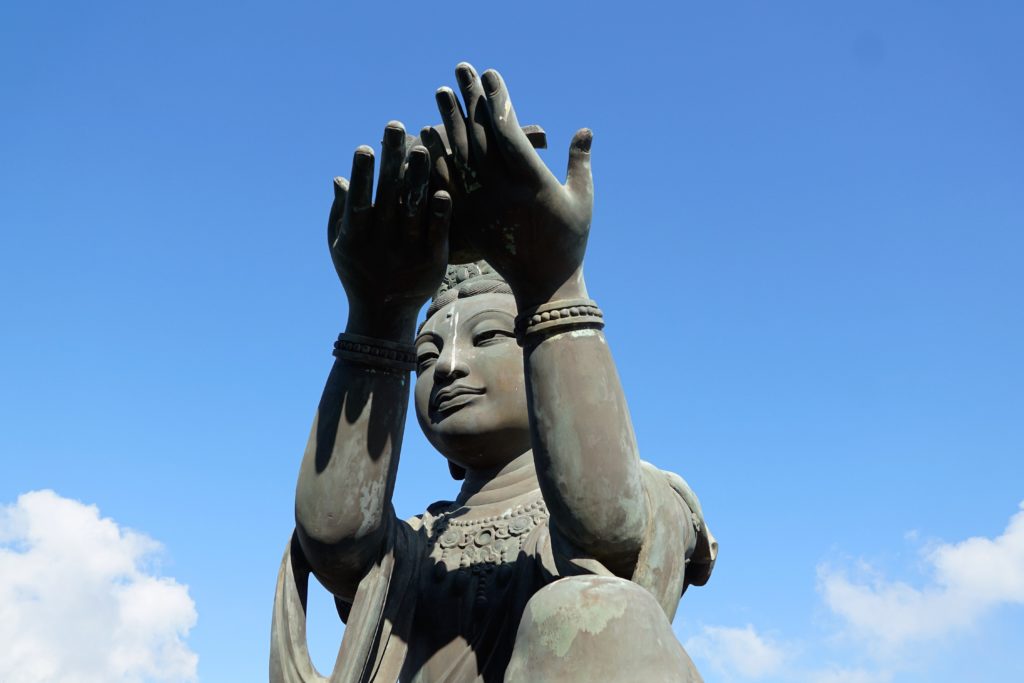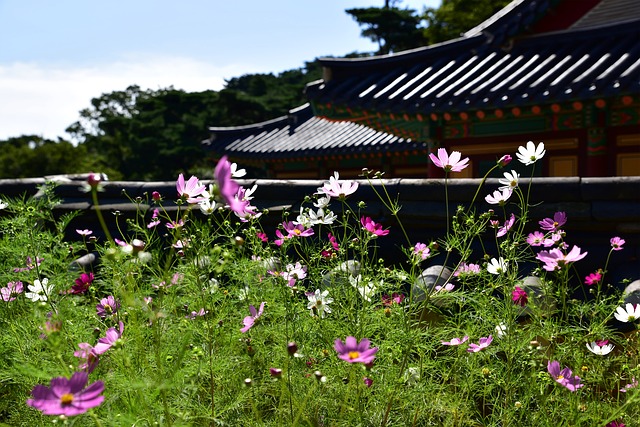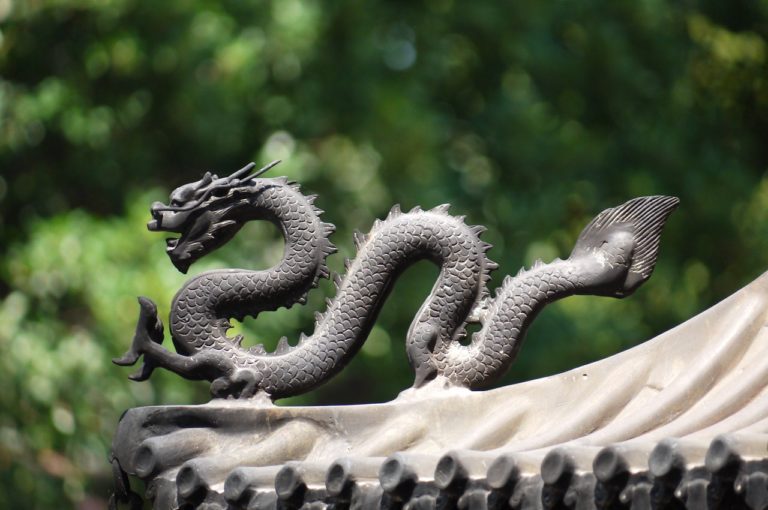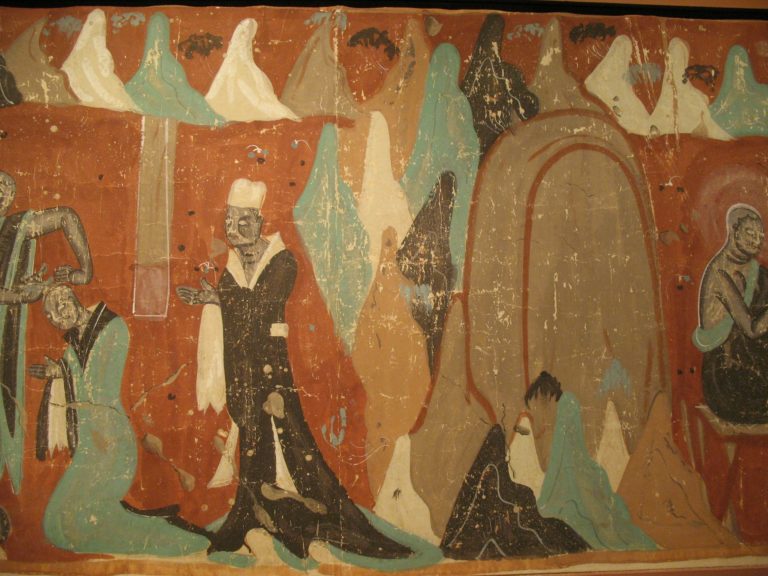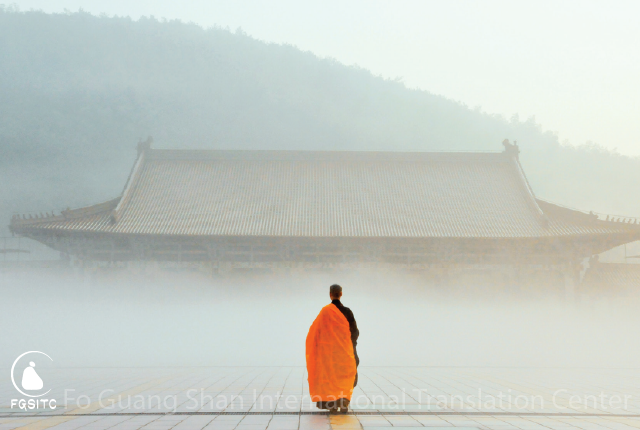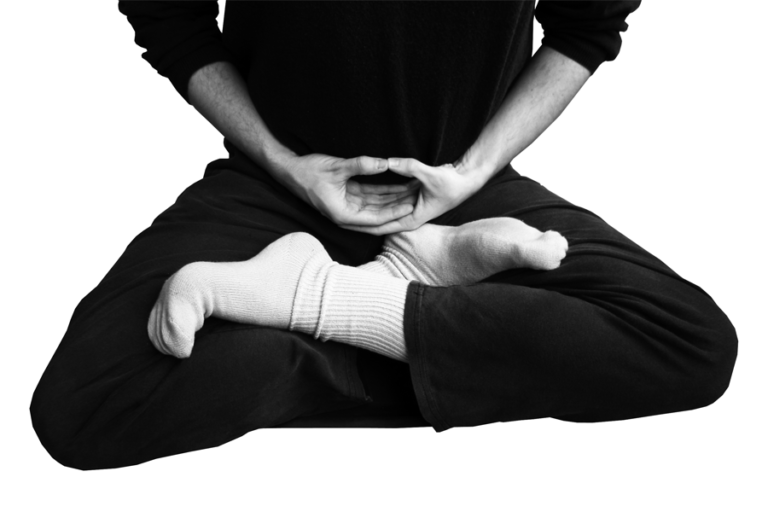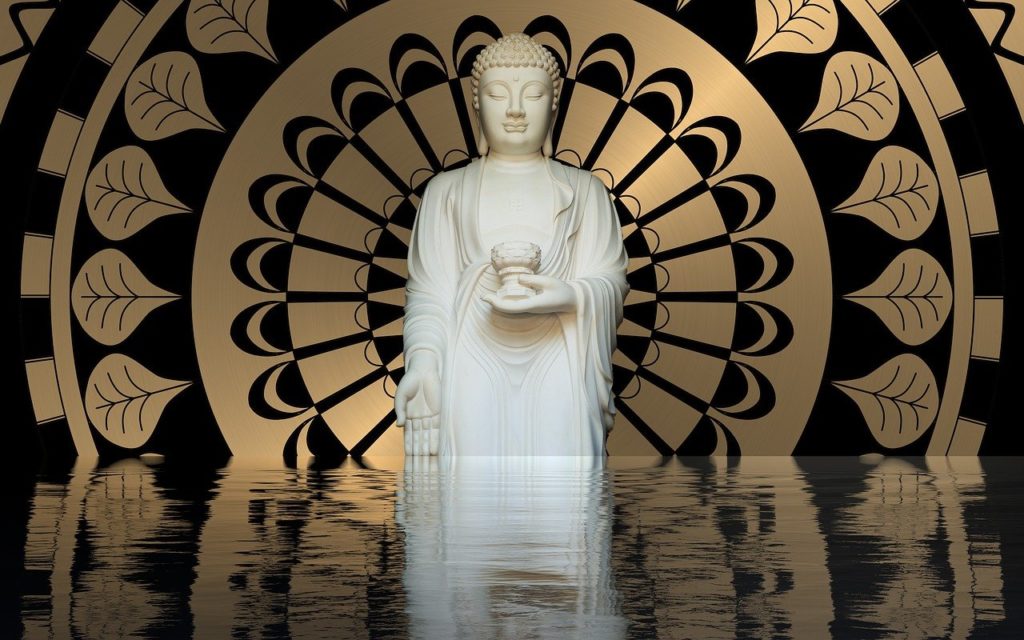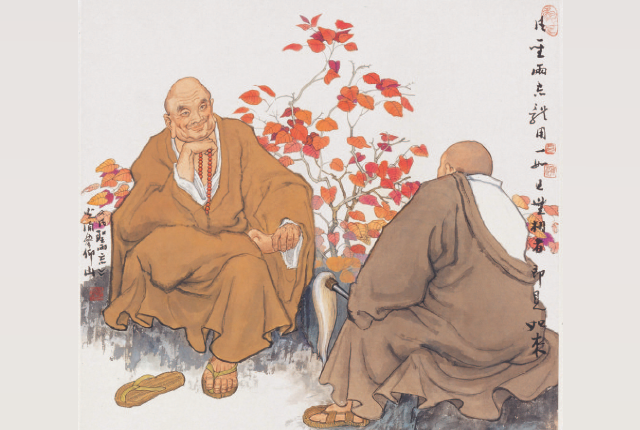
When Chan Master Nanta Guangyong first went to study with Chan Master Yangshan, Yangshan asked him, “What have you come here for?”
Guangyong answered, “I’ve come to pay my respects to the Chan Master.”
Yangshan then asked, “Have you seen the Chan Master?”
Guangyong answered, “I’ve seen him.”
Yangshan further asked, “Is the Chan Master’s appearance like a donkey or a horse?”
Guangyong said, “I think the Chan Master is also not like a Buddha!”
Yangshan would not let up and proceeded to ask, “If he’s not like a Buddha, then what is he like?”
Not wanting to be outdone, Guangyong answered, “If he’s like anything at all, then what difference is there from a horse or donkey?”
Yangshan exclaimed in great admiration, “You’ve transcended the ordinary and the sacred! Emotions ceased, true essence revealed. In the next twenty years, no one will surpass you. Take good care of yourself.”
After this, whenever Chan Master Yangshan met anyone, he would say in praise, “Guangyong is a Buddha in the flesh.”
What, exactly, is the meaning contained within this gong’an? For instance, some have asked, what are people like? This is a very difficult question to answer because if there are things they are like, then there are things they are not like. If we answer that people are like ghosts, then there are also people among ghosts. If we say ghosts are like people, then there are also ghosts among people.
The Diamond Sutra says, “All forms are illusory. If we see that the various forms are formless, then we see the Tathagata.” What is space* like? Space is without form and without formlessness. Because space has no form, it can embrace the myriad phenomena. Space has no form, so it is like the forms of all phenomena.
Chan Master Yangshan and Chan Master Guangyong debated that he was not like a donkey and not like a Buddha. Then what exactly was he like? He was like himself. Only by seeing our own intrinsic nature can we be as one with space. What is it like? It is like the form of space without form. If we are able to transcend the ordinary and the sacred, and if essence and function are one, then that is seeing the truth of formlessness.
*In Buddhism, the term “space” refers to that which has no limits or boundaries, is permanent and eternal, and embraces everything.
Source: Chan Heart, Chan Art, written by Venerable Master Hsing Yun.

